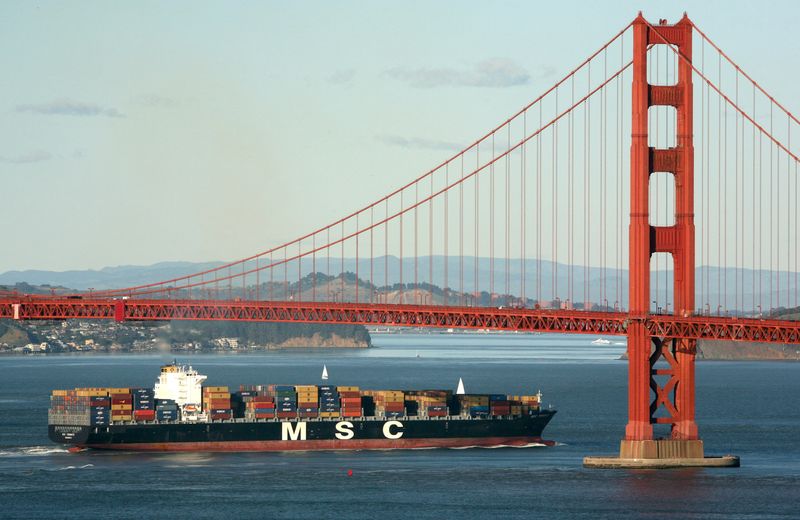By Lisa Baertlein
LOS ANGELES (Reuters) – President Donald Trump’s plan to revitalize the U.S. shipbuilding industry is likely to backfire because it relies on proposed fees on China-linked vessels that will hurt domestic ship operators and ports, industry executives will tell the U.S. Trade Representative at hearings this week.
In particular, they will say the plan would hurt U.S. ship operators by strictly limiting the vessels they would need to use to avoid the fees, and by concentrating ship traffic at America’s biggest ports while leaving the smaller ones neglected.
“Any proposal to support U.S. shipbuilding should also support existing U.S.-owned carriers (not harm them),” Edward Gonzalez, CEO of Florida-based Seaboard Marine wrote in comments ahead of his expected testimony on Monday.
At issue is a proposed charge of up to $1.5 million for Chinese-built or Chinese-flagged vessels docking at U.S. ports. The Trump administration says that and other contemplated fees would curb China’s growing commercial and military dominance on the high seas and promote domestically-built vessels.
In the short-term at least, the plan is a huge problem for U.S. operators like Seaboard, the largest U.S.-owned international cargo carrier, which has 16 China-built ships in its fleet of 24 vessels, according to maritime data provider Alphaliner. Like many U.S. operators, it relies on ships made in China.
According to the USTR, China’s share of the shipbuilding market grew from less than 5% in 1999 to more than 50% in 2023.
USTR did not immediately respond to requests for comment.
U.S. vessel operators underpin key American industries like manufacturing, mining and agriculture by transporting goods to and from inland waterways, across the Great Lakes and up and down the country’s coasts.
“Since there aren’t really U.S. ships being built, all of us U.S. operators are depending on the foreign-built market and that foreign-built market is more than 50% Chinese,” Fernando Maruri, founder of Texas-based King Ocean Gulf Alliance, told Reuters. Its businesses rely on chartered ships to move mining, oil drilling and agriculture-related goods between the U.S., Mexico, the Caribbean and Central and South America.
To completely avoid the fees, vessel operators must be based outside of China, have fleets with fewer than 25% of ships built in China, and have no Chinese shipyard orders or deliveries scheduled within the next two years, according to the USTR proposal. A draft executive order seen by Reuters earlier this month would narrow that further by levying port fees on all fleets with China-built vessels.


